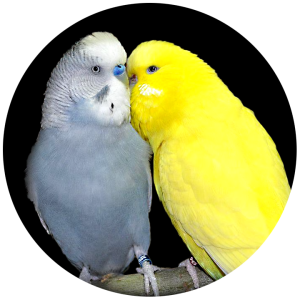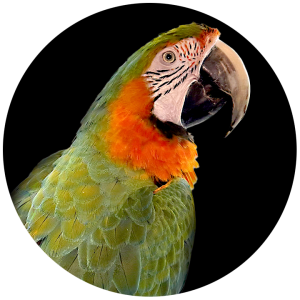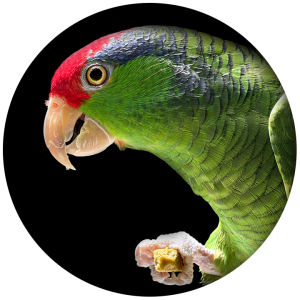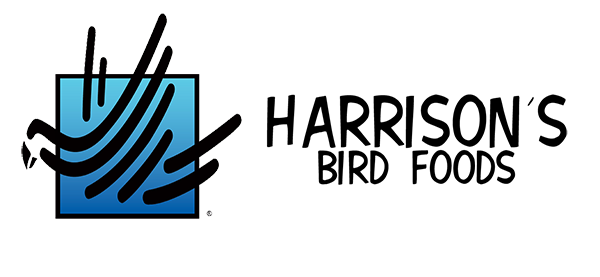Things to Know to Keep Your Pet Bird Healthy and Safe
Food and Water
Most avian veterinarians recommend a high-quality, toxin-free formulated diet, preferably certified organic. Supplementation can include a small amount of fresh, high-quality, chopped organic vegetables and fruit.
Clean, fresh, uncontaminated drinking water should be provided in easy-to-clean containers and changed frequently, especially if the bird defecates in the water bowl. Consider training your bird to use a water bottle.

Shelter
Housing for your cockatiel should be as large as possible and secure, safe, and easy to clean. Ensure that the enclosure is constructed from nontoxic materials, as some cages may contain heavy metals, such as zinc. Provide perches of various sizes made from clean, nontoxic, pesticide-free wood or branches, and place them away from food and water bowls. Always check with your veterinarian for recommendations on suitable trees.

Fun
Stimulating environmental enrichment is essential and can be achieved by offering toys, social interaction, and foraging opportunities. Your bird may also appreciate occasional baths, showers, or misting with fresh water, as well as protected outdoor exposure to fresh air, direct sunlight, and exercise.
The decision to clip wings or allow free flight should be made carefully. Birds allowed free flight benefit from exercise and mental stimulation; however, free-flying birds may be injured by hitting windows or ceiling fans or by encountering toxic materials. The goal of wing clipping is not to make the bird incapable of flight but to prevent rapid, sustained flight and escape.

How to Identify Your Bird
If your pet bird escapes outdoors, permanent identification can help in returning it to its owner. One effective method for permanent identification is the implantation of a microchip, similar to what is done for other pets.
Signs of Most Common Medical Issues of Pet Birds
- General signs of illness (fluffed up, loss of appetite, depression, change in droppings)
- Respiratory disease (sneezing, nasal discharge, clogged nostrils, open-beak breathing)
- Liver disease (abnormal feather color, swollen abdominal area, yellow or green urine and urates)
- Gastrointestinal disease (general illness, unusual droppings)
- Heavy metal – lead or zinc – poisoning (loss of appetite, abnormal movement, depression, yellow feces, vomiting, incoordination)
- Egg-binding, yolk emboli (swollen abdomen and vent, straining)
- Feather destructive behavior (broken, chewed, missing, bleeding emerging feathers)
- Obesity
- Injuries from collisions or attacks from other pets (bleeding)
- Intestinal parasites (weight loss, general signs of illness, change in droppings)
Preventive Medicine
Many diseases in pet birds can be prevented with proper diet and housing and regular veterinary care. It is advisable to establish a relationship with a veterinarian before your bird becomes ill. For help in finding an avian veterinarian in your area who is experienced in preventive care, medicine and surgery, contact the Association of Avian Veterinarians (AAV) by visiting www.AAV.org and clicking on “Find a Vet near you” or the American Board of Veterinary Practitioners by visiting www.abvp.com/diplomate.
Protect Your Pet Bird From:
- ceiling fans
- stove tops with hot burners, pans or skillets
- fumes from overheated non-stick cookware, plug-in air fresheners, scented candles, tobacco and cigarette smoke
- sandpaper-covered perches
- ingesting chocolate, avocado, salt, alcohol, toxic houseplants, sources of heavy metals, such as lead or zinc (stained glass windows, pewter, some mini-blinds or linoleum)
- pesticides or cleaners
- dogs, cats and unsupervised children


